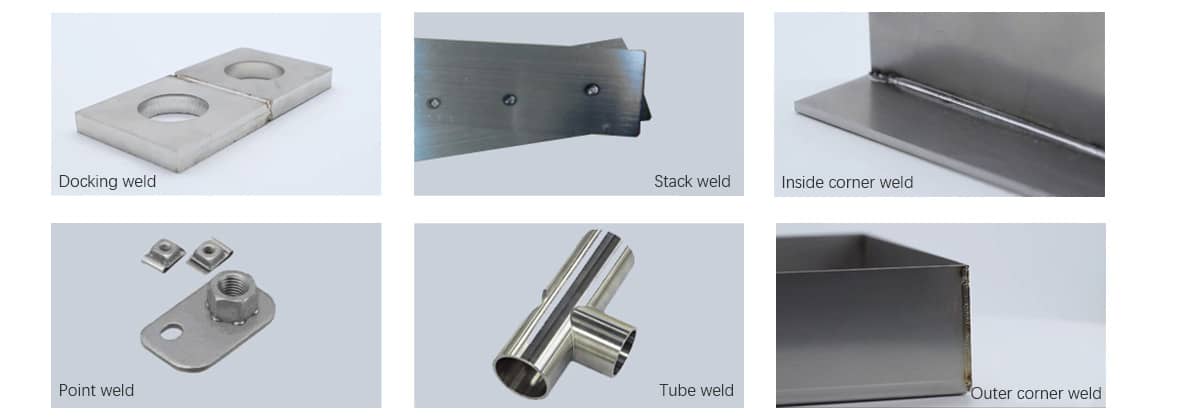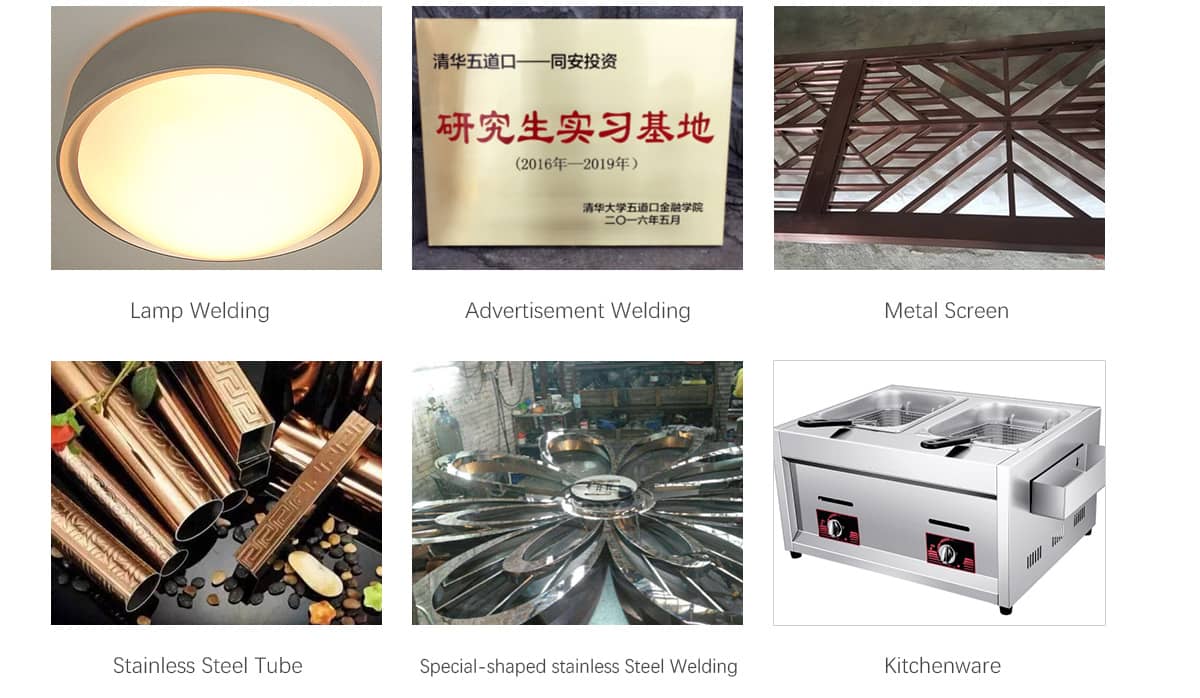Views: 14 Author: Site Editor Publish Time: 2021-09-30 Origin: Site
The Handheld fiber laser welding machine is a high-end, new type of welding method. The laser beam is coupled to the fiber, and after being transmitted over a long distance, it is processed into parallel light. Focusing on the work-piece to carry out continuous welding, the welding effect is stronger and the weld seam is more fine and beautiful due to the continuity of the light output. According to the different needs of different industries, the equipment can meet the needs of users in different industries, such as advertisement letters, metal plate, cabinet, shelf, door, window, elevator, Washing Basin, etc. many metal products industries.
Why Are More Manufacturers Switching To Welding With Fiber Lasers From Traditional Welding Techniques?
Staying competitive today requires cost reductions, efficiency gains and repeatable part quality that cannot be met by traditional techniques that rely on increasingly scarce, highly-skilled craftsmen.
Why Are More Manufacturers Switching To Welding With Fiber Lasers From Traditional Welding Techniques?
Staying competitive today requires cost reductions, efficiency gains and repeatable part quality that cannot be met by traditional techniques that rely on increasingly scarce, highly-skilled craftsmen.
Enabled by unprecedented no-maintenance, high-reliability and low-cost fiber lasers, Laser Welding Machine systems have become the preferred welding solution for the manufacturing industry. Keep an edge by introducing a handheld fiber laser welding machine now!

flexible use of laser technology advantages
highest laser safety due to TSS™
best seam quality in regards to weld surface and strength
hardly any distortion or annealing colours
high productivity and reproducibility
no welding experience required
Features of Laser Welding Machine
1. Super Economical
Fiber laser welding is 5 to 10 times faster than traditional welding.
High electro-optic conversion efficiency (>25%), low energy consumption, Low consumable cost, maintenance-free.
2. Easy Operation
Easy to install and operate, low technical threshold for operators and saves labor costs.
Humanized design and excellent human interaction to provide high levels of automation options.
Stable output power, smaller heat-affected zone and thermal deformation, no need polishing.
3. Safety and Environmental Protection
Double safety protection ensures the safety of the operator.
Greener and safer than traditional welding, very minimal noise.
General Steps for the Laser Welding Machine Process:
Open the main panel door (unlock if necessary) and turn the key to the ON position.
Make sure to turn on the computer or tablet with the software/program attached.
Turn on the camera/TV for a second view (if applicable).
Turn on the protective gas by opening the valve (CCW) using the knob at the top.
Make sure the part or item that is going to be welded is positioned in a logical way that the laser welder head can reach. If it is a smaller part, keep it secure in a vice or another form of stability for the safety of the operator.
Turn on the fume extractor and make sure the vacuum is directed accordingly.
Now orientate the laser head to where it is roughly 8” away from the target weld surface.
Use the dials on the microscope to focus and magnify the clarity of the welding area.
Lock the laser head and base of the machine in place to ensure stability and accuracy.
The set-up is done and you are ready to laser weld!
Test the movement joystick with your none dominant hand (or however you’d like) to maneuver the laser welder head in the standard 3-axis direction. This will control the path that the laser beam itself will follow.
To activate the actual laser beam, you will use the foot pedal or whatever controller you have in your set-up. The foot pedal should be portable and you can place it wherever it is the most comfortable for your arrangement.
You will now take a piece of wire (they vary in size depending on the application) and hold it in your hand that is free or in other words, not the hand on the joystick. One way to hold the wire is as if you were holding a pen but place your thumb a little higher so you can distribute the force and create more stability over the wire material. However, with practice, you will find your most comfortable hand position.
Now combine steps 9, 10, and 11 to proceed to actually laser weld your specified area. Hold the wire steadily on the part in line with the area you are about to weld. Use the joystick to start at the tip of the wire and proceed to actuate the laser beam. Now follow the direction of the wire to melt the material together to create your laser weld!
Scope of Application

Suitable for welding of stainless steel, iron sheet, aluminum, copper, alloy, steel, diamond equivalent materials or dissimilar materials, cabinets, kitchens, stair elevators, shelves, ovens, stainless steel doors and windows guardrails, distribution boxes, Stainless steel household and other industries.
